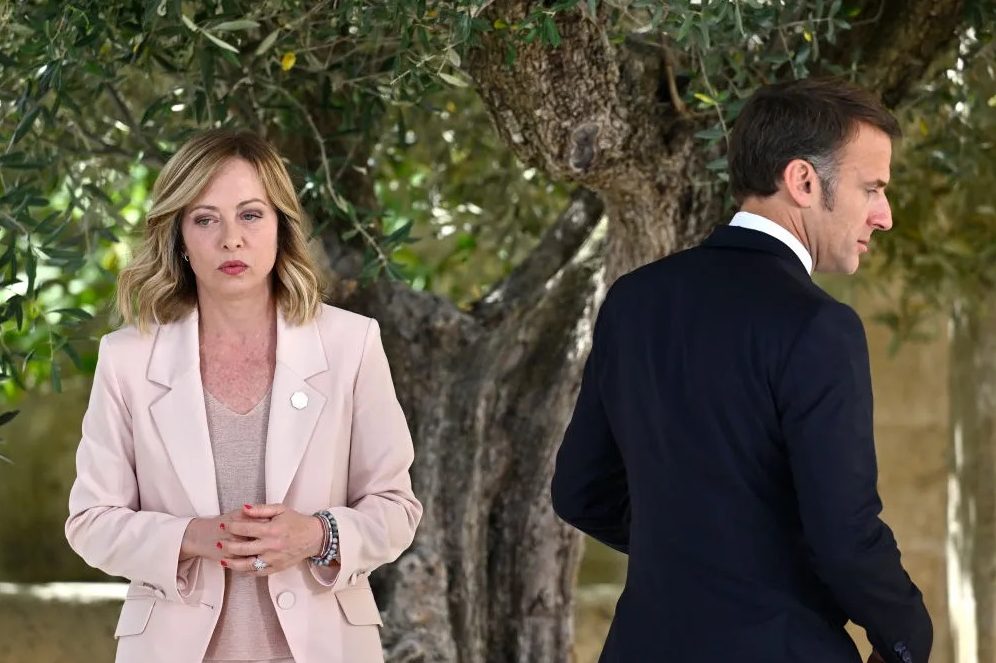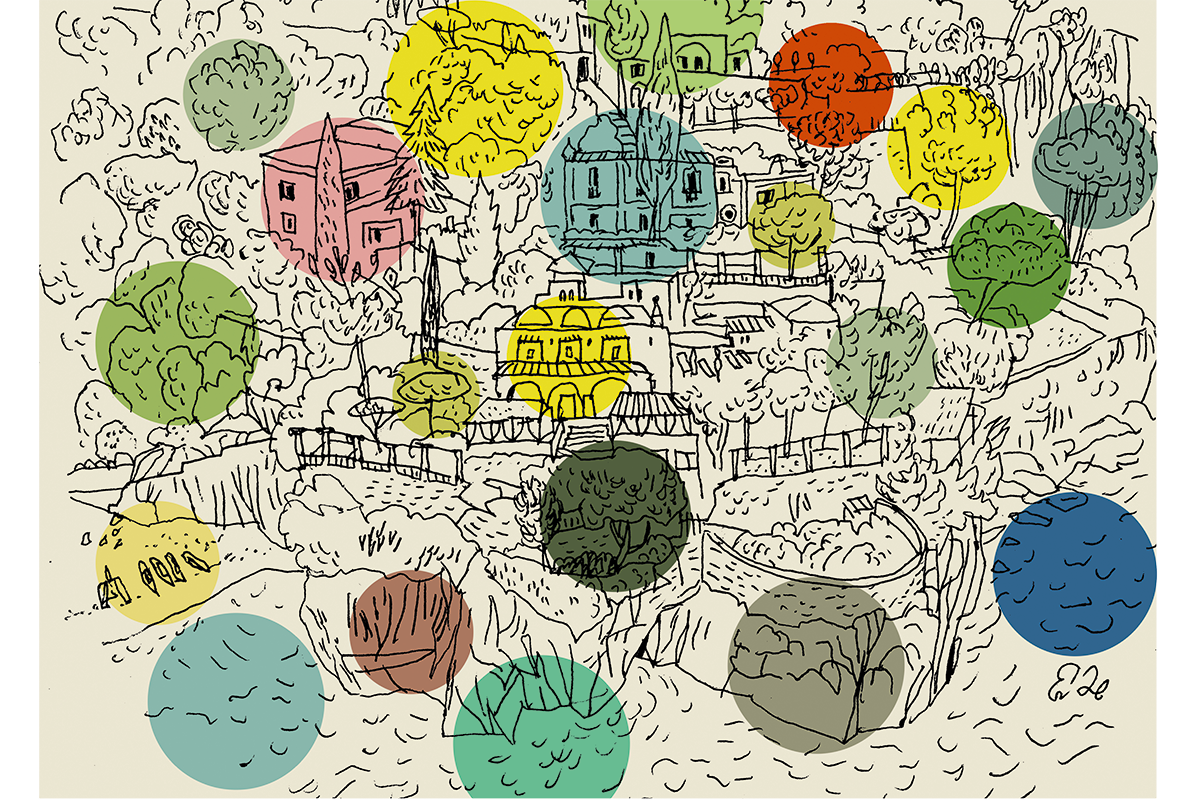The German government has expressed its “concern” at the prospect of Marine Le Pen’s National Rally forming the next government of France. Poland’s prime minister Donald Tusk — the man who said Brexiteers deserved “a special place in hell” — responded to the result by saying “this is all really starting to smell very dangerous.”
Not in Italy, where the odor wafting down from France after the first round of the parliamentary election was rather to the liking of Giorgia Meloni. “I congratulate the Rassemblement National and its allies for the clear success,” she said.
No EU leader will have enjoyed Macron’s humiliation at the hands of Le Pen more than Meloni
As in Italy, she noted, French voters had been bullied and harassed by a cultural and media elite who “attempt to demonize and corner the people who don’t vote for the left.”
That this campaign of intimidation had failed was a cause for celebration. “It’s a trick that serves to escape from the debate on the merits of the different political proposals,” explained Meloni. “But it’s a trick that fewer and fewer people fall for.”
When Meloni was on the campaign trail to become prime minister in 2022 she was frequently likened to Mussolini. Progressive journalists took exception to her traditional views on family, and her opposition to transgenderism and mass immigration. As I wrote at the time, “according to the world media Italy’s new leader is Il Duce in a blouse.”
When Meloni won the election, no administration was more ungracious in acknowledging her victory than France. The then prime minister, Elisabeth Borne, refrained from offering any congratulations to the first woman to be elected Italian premier; instead she issued a reminder that “in Europe we have values, and that each State must respect these values — the rule of law, human rights, abortion rights.”
The French transport minister Clément Beaune, noted the similarities between the flame used as the symbol of Le Pen’s party and Meloni’s Fratelli d’Italia: “It is the flame from Mussolini’s tomb, the symbol chosen by Italian neo-fascists,” he said.
The final straw for Meloni was when Macron’s European affairs minister, Laurence Boone, sniffed that “we will monitor respect for rights and freedoms.”
In a social media post, Meloni retorted: “I want to hope that, as often happens, the leftist press has misrepresented the real statements made by foreign government officials, and I trust that the French government will immediately deny these words, which resemble too much an unacceptable threat of interference against a sovereign state.”
There was no public comment from Paris and relations between Meloni and Macron have remained ice cold. As recently as last month the pair clashed over abortion rights at the G7 summit in Italy, and a clip of Meloni extending a less than warm welcome to Macron went viral.
No EU leader will have enjoyed Macron’s humiliation at the hands of Le Pen more than Meloni. She may also have raised a smile at the news that Clément Beaune lost his seat in the first round of voting, and that Elisabeth Borne may lose hers in the second round of voting on Sunday.
Borne finished second behind the National Rally candidate, but she may salvage her political career if Jean-Luc Mélenchon’s La France Insoumise withdraws its candidate from the second round and instructs its voters to support Borne in order to defeat the National Rally. But would Borne, a woman who places such emphasis on European values, wish to benefit from the support of LFI, a party which is widely perceived by French Jews as encouraging antisemitism?
Meloni has done Le Pen a big favor in extending her congratulations. Far from turning into a twenty-first century Mussolini since becoming prime minister, Meloni has become the most effective leader in the EU. She is also the darling of conservatives across the continent, and it was significant that she referenced the French center-right Republicans in her remarks about the election. “Even the Republicans are oriented towards not participating in the so-called republican front,” said Meloni.
This “front,” or coalition, has for many years been erected by parties in France in between voting rounds to ensure Le Pen doesn’t win.
Prior to the parliamentary elections, the president of the Republicans in France, Eric Ciotti, allied with Le Pen, to the anger of the party’s grandees. The Republicans polled 10 percent in Sunday’s first round and have said they will not be advising their voters on whom to support in the second round.
But the fact Meloni has endorsed Le Pen will encourage the middle-class Republican supporters to fall in behind the National Rally. If they’re good enough for Meloni, then they’re good enough for us.
Meloni has conservative credibility. She represents what the Republican Party in France once stood for: economic liberalism and social conservatism, before they moved to the center and, like the British Tories, became social democrats and purveyors of progressivism.
Meloni has waited a long time to get back at Macron and his progressive government for their arrogance and disdain they have shown her. Revenge has never smelled sweeter.
This article was originally published on The Spectator’s UK website.


























Leave a Reply